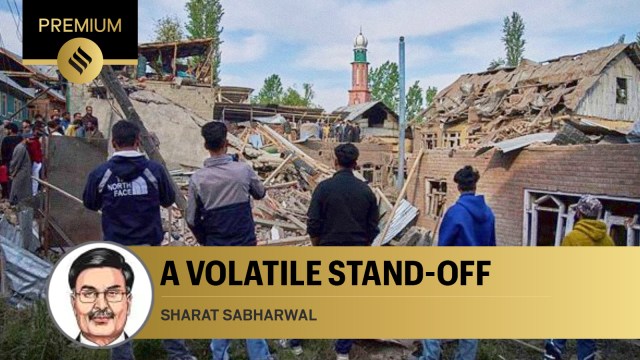
There is a strong sense of deja vu in the air. There has been yet another horrendous Pakistan-sponsored terror attack in Jammu and Kashmir followed by the ticking of all the familiar boxes: Widespread condemnation within the country, expressions of resolve by our leadership to bring the perpetrators and their sponsors to justice, and expressions of sympathy by key world leaders. But past experience leaves one with an uneasy feeling that this attack may not be the last. Sadly, after suffering Pakistani terror for over 40 years, several peace moves by India and our avowed muscularity of the past 10 years, there is no end in sight to this scourge.
Just as Pakistan-sponsored terror has continued, so has India’s search for responses and instrumentalities to put an end to it. The Pahalgam attack has been followed by the following steps so far: holding the Indus Waters Treaty in abeyance, closing the Integrated Check Post at Attari, scrapping the SAARC Visa Exemption Scheme (meant for top functionaries and special categories) for Pakistani nationals, suspending visa services for Pakistani nationals and reducing the strength of the respective high commissions from 55 to 30.
The measures other than the Indus treaty move are largely symbolic. The Attari check post was already grossly underutilised after the suspension of trade by Pakistan in 2019 and the number of visas to Pakistani nationals had gone down appreciably. The Indus Waters Treaty (which remained in force even during the wars of 1965 and 1971) had been in limbo in recent years due to irreconcilable differences over its implementation. With India’s decision to hold it in abeyance, the comfort provided by it to Pakistan, a water-stressed country and the lower riparian, is gone. Indian projects to harness the waters of the Indus, Jhelum and Chenab will no longer be restrained by the treaty stipulations, some of which are outdated. However, in the absence of projects to store and divert Pakistan’s share of water for use in the Indian plains (the building of such projects in mountainous terrain, besides being technically challenging, is extremely costly and time-consuming), the immediate impact of this move may not be consequential.
In response, besides reciprocating the Indian steps, Pakistan has closed its airspace to Indian aircraft, stopped Afghanistan’s exports to India through its territory and threatened to “hold all bilateral agreements with India including but not limited to [the] Simla Agreement in abeyance”. This last is an empty threat. Pakistan never adhered to the Simla Agreement in letter and spirit, violated its stipulation of bilateralism all along and the sanctity of LoC repeatedly. Moreover, will it hold in abeyance the agreements on military confidence-building measures? After all, these agreements and the sanctity of the LoC are as important for it as for India. Pakistan has also said that any attempt by India to stop or divert its share of water would be considered an act of war, which would be responded to with full force across the complete spectrum of national power. This is Pakistan’s latest attempt at nuclear blackmail.
The above developments have resulted in a fraught standoff, to which there is no end in sight. It holds the possibilities of more violence. One cannot imagine India not taking kinetic punitive action in response to the brutal Pahalgam attack. Preferably, the government of the day should be able to take such action at a time and place of its choosing without publicity to reduce the chances of escalation. However, considering the intense public sentiment involved and the high bar set by the well-publicised Balakot strike, it may be otherwise and result in a Pakistani response. The two countries were able to prevent an escalation post-Balakot, but this remains a challenge. Firing has been reported along several stretches of the LoC. Further, any moves by India to curtail water flowing to Pakistan would invite some reaction. Cross-border terrorism has remained their instrument of choice.
All that we citizens can do for now is to wait and watch, standing in solidarity with our security forces. India standing together across its diversity will be a befitting response to the barbarians who killed their victims on the basis of their religion. Let us also eschew jingoism, which is the hallmark of the weak and insecure and not of a confident nation.
The trajectory of the India-Pakistan relationship beyond resolution of the current standoff also remains sombre. It has been at an impasse in recent years. Diplomacy has taken a back seat and diplomatic contacts are being diluted with each reduction in the size of respective missions. The two countries are dependent entirely on deterrence and coercion to manage the relationship. Ideally, coercion should be a means to an end, with its impact leading at some point to the adversary climbing down to a more reasonable position. Pakistan has so far shown no change in its behaviour. Consequently, coercion seems to be becoming an end in itself. Such an environment is prone to volatility and violence. While our security forces may largely insulate us against such volatility, even their best efforts cannot ensure zero terror.
Sharat Sabharwal is a former high commissioner to Pakistan and author of India’s Pakistan Conundrum: Managing a Complex Relationship